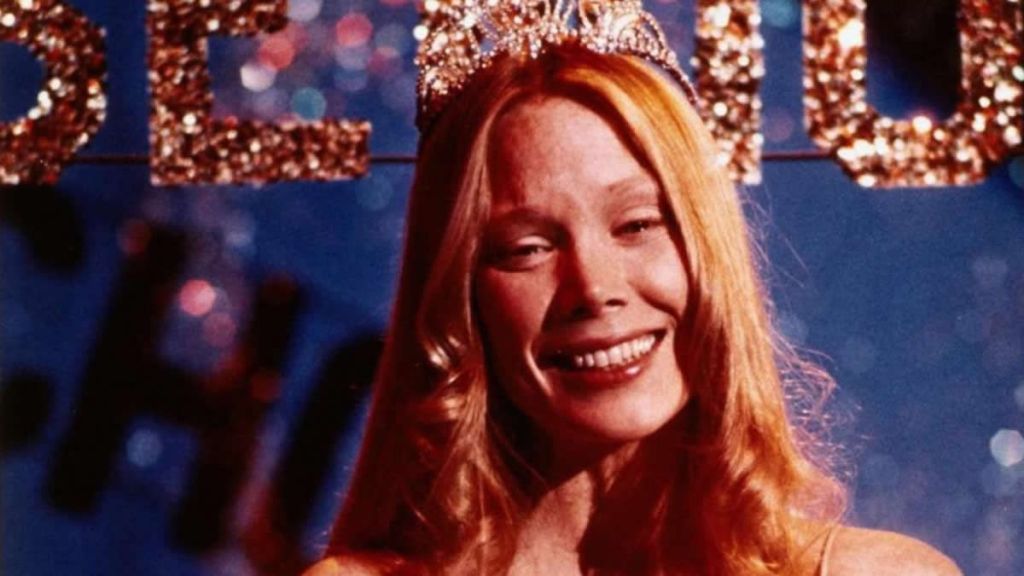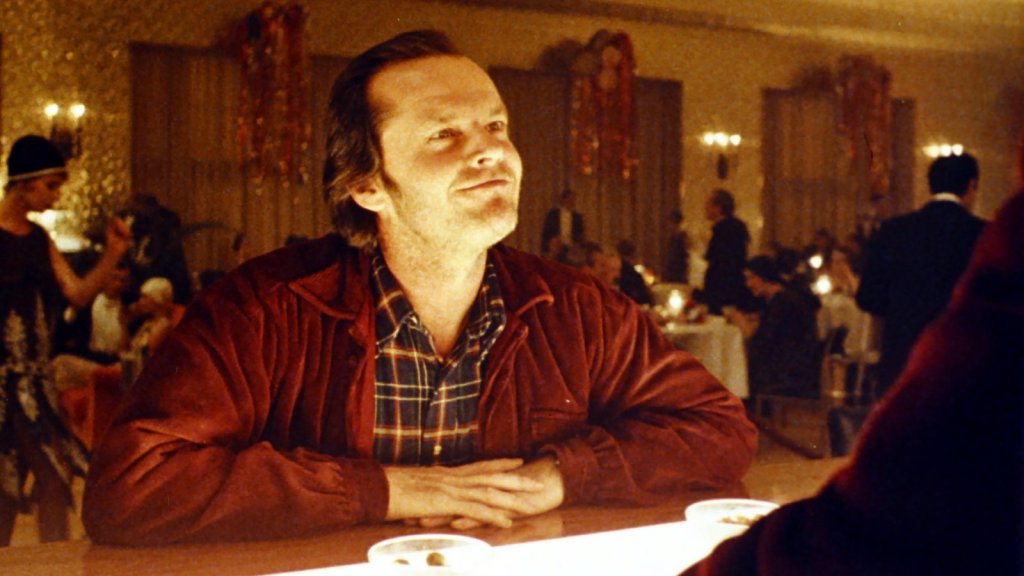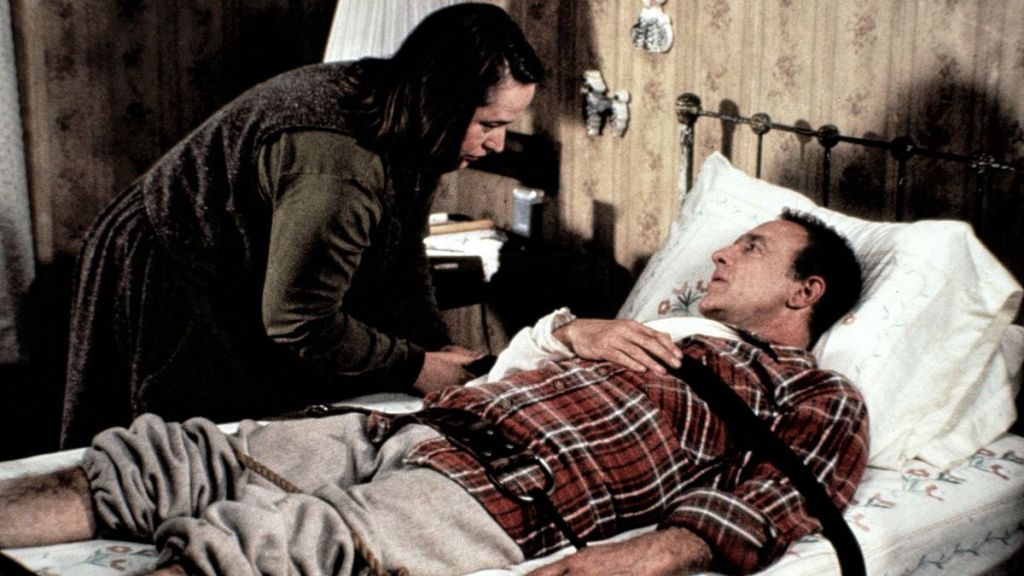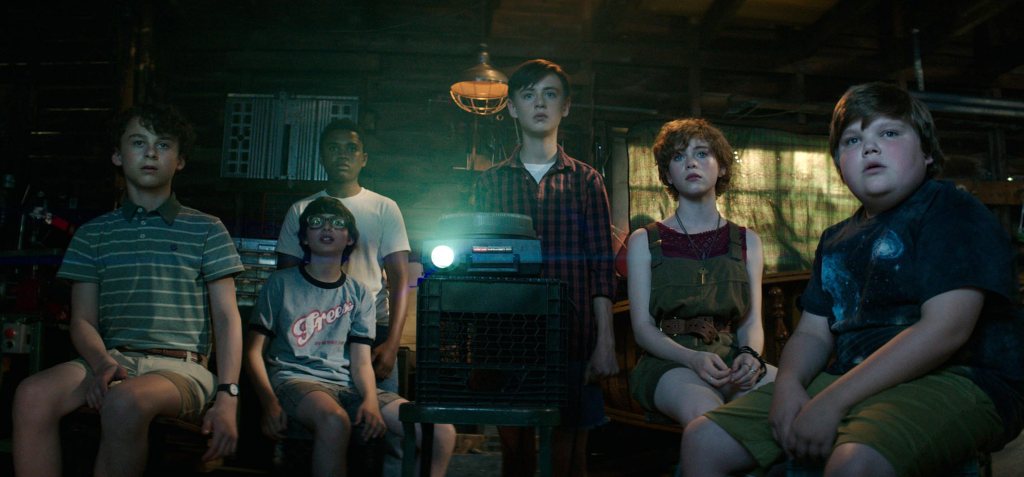
There are a LOT of bad Stephen King movies out there. The Tommyknockers. Dreamcatcher. Maximum Overdrive. Sleepwalkers. Thinner. I’d argue there are more lousy King adaptations than good ones. But his work resonates with audiences so profoundly that I suspect the films will keep coming for far beyond his and our lifetimes. Here are my personal favorites of movies made based on his work with some thoughts about them.

Carrie (1976)
Written by Lawrence D. Cohen
Directed by Brian de Palma
This was the first film to be based on a King work, and it is still one of the best. What helps keep Carrie as one of the pinnacle pictures is twofold: the stylish take by Brian de Palma and the performance by Sissie Spacek. De Palma was meandering through his career at this point, trying on different genres for size. He’s just come off of The Phantom of the Paradise, a cult rock opera when he decided to tackle Carrie. De Palma uses techniques he’s observed from the master of cinematic thrillers, Alfred Hitchcock to ratchet up the tension. This would continue in the director’s work in the 1980s, and he’d be frequently criticized as aping Hitchcock when I argue that Hitchcock created a subgenre of crime film and de Palma was working in that space.
Spacek is heart-achingly sincere as Carrie, and a perfect example of a complicated and layered protagonist. In the film’s finale, she becomes an agent of destruction, but it’s impossible to argue she’s the villain, yet is she a hero? Carrie’s mother, played by the fantastic Piper Laurie, is more of the villain role and represents one tired trope of King’s, the ranting female religious zealot. Here that character type is not so grating as it would become in later years. Overall, Carrie is a beautiful introduction for audiences to the world of Stephen King. It’s the veneer of the suburban idyll stripped away by emphasizing the mundane, everyday traumas of bullying and ostracization.

The Shining (1980)
Written by Stanley Kubrick & Diane Johnson
Directed by Stanley Kubrick
King hates this movie, but it is one of my favorites. Director Stanley Kubrick took the bones of King’s novel and stripped away the details to fashion his own creation. I personally think this was the right move and the proof is in the faithfully adapted tv mini-series from the 1990s which is cringe-inducingly awful. Kubrick isn’t concerned with exposition and giving detailed back histories. We just need the faint outlines, and the rest of the movie preys on our subconscious fears, implying horrors and forcing the audience to gaze on undefined moments of terror.
What I love most are the intentional errors in the history of the hotel. The layout of the Overlook Hotel is constructed so that it could not exist in physical space with doors to rooms that cannot be based on the adjoining hallway. It’s subtle, but it increases the unease in the audience’s mind. There are stories told about the hotel and massacres there that don’t seem to line up when Jack Torrance meets one of the former caretakers. The Shining has remained a powerful piece of horror cinema for a good reason, Kubrick told a simple haunted house story and never let himself get overwhelmed with plot points overtaking why audiences go to see scary movies.

Misery (1990)
Written by William Goldman
Directed by Rob Reiner
Rob Reiner returned to the work of King after directing Stand By Me by adapting this tense psychological story. Author Paul Sheldon is driving home after a getaway in the snowy mountains of Colorado to finish up his latest novel. An accident sends Sheldon off-road and injures him. Luckily, local nurse Annie Wilkes happens to come by and bring Sheldon to her cabin to recover. This good samaritan quickly morphs into an unstable nightmare, and we get a glimpse into King’s own fear about fame and fans.
Reiner somehow makes this story both a dark comedy and a genuinely terrifying nightmare come to life. Bates is pitch-perfect as Wilkes, the role that would win her an Oscar and make her a household name. James Caan as Sheldon is good, but I think even he knew this movie was Bates’ show to steal. The brutality visited upon the author is so visceral, filmed in a way that allows tension to organically build to a breaking point. It’s still tough to watch when Annie realizes that Sheldon is healing up a little too fast for her taste, and she needs to do something about that.

Dolores Claiborne (1995)
Written by Tony Gilroy
Directed by Taylor Hackford
Bates returned to the work of King by playing the title role in this unfairly underrated film. Dolores Claiborne is a domestic for a wealthy family in Tall Island, Maine. The work was a good escape from a home where her husband abuses her. However, one day, Dolores is caught standing over her fallen employer with a rolling pin held threateningly in her hand. This earns the woman the place as a pariah in the community as the investigation begins.
Dolores’ only child Selena returns to her childhood home to defend her mother; however, Selena has her own doubts as she believes her mother may be responsible for her father’s mysterious disappearance two decades earlier. This film ultimately ends up less straightforward horror and more like a Gothic romance. This subgenre is focused around a constant sense of morbidity and a sense of pleasurable fear. There is a grand finale to this story that captures these elements and reshapes both the audience and Selena’s perceptions of Dolores.

The Mist (2007)
Written & Directed by Frank Darabont
I have never been the greatest fan of The Shawshank Redemption, but it’s this Frank Darabont-King picture that affected me the most. This is King working the realm of Lovecraft, a military operation on a nearby mountain leaves the citizens of Bridgton, Maine scrambling for safety as a dangerous fog rolls into town. Within this mist are grotesque and hazardous creatures, otherworldly monsters that are picking people off. The majority of the characters are holed up in a supermarket trying to parse what is going on and when they can expect authorities to save them.
There are some tired King tropes here, particularly the zealot woman who is the worst part of the movie. The metaphor in the story is pretty heavy-handed and obvious when there were more interesting angles to take the picture. What redeems everything is the picture’s third act, one of the best King film conclusions ever. It’s so bleak, so nihilistic but hits incredibly hard emotionally. The pain in our protagonist tasked with the worst thing that could be expected of a human being can be felt. I doubt you’ll be able to move past this finale very quickly and will need to sit with it for a while.

It (2017)
Written by Chase Palmer, Cary Fukunaga, and Gary Dauberman
Directed by Andy Muschietti
This is probably the best straight adaptation of a King work to date. My personal favorite is The Shining, but I understand that it is not necessarily close to the original work. What elevated this version of It was the inclusion of Cary Fukunaga’s drafts, which is made evident by how woefully mediocre the sequel is. Fukunaga made sure that the story kept the trauma and pain of our child protagonists front and center. This version of Pennywise is genuinely terrifying and mysterious, something that would definitely haunt a child’s dreams.
The parts of the film I don’t like are when it becomes a succession of jump scares when the kids split apart. When they are together, the narrative focuses on their relationships and the ways they support each other, everything shines. I doubt this will be the last time It is adapted for the screen. Give it thirty years, and we’ll probably see another one, but this particular version is going to be the watermark for what follows.

One thought on “My Favorite Stephen King Movies”